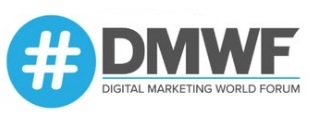
The Covid-19 pandemic has made many businesses suffer – and for marketing teams and agencies, where proving value has almost always been a bunfight, the impact has been especially hard.
According to a study from performance marketing provider Uplers in June, polling CEOs and senior management in agencies, more than half (57%) believed the impact of Covid-19 would last more than six months. Two thirds (66%) had seen a decrease in overall revenue.
Digital consumer intelligence and marketing software provider Brandwatch has, through its various research and surveys, had its finger on the pulse of user demand during the pandemic. The company conducted an in-depth global report assessing whether Covid-19 will change consumer behaviour in the long-term. It garnered a mixed bag of findings, but one element which stood out was how behaviour appears to be changing permanently; even post-Covid – whenever that might be – consumers will continue habits such as online clothes shopping, or buying local where possible.
Ultimately, as Kevin Virsolvy, senior director of international marketing and demand generation at Brandwatch, puts it, consumer priorities in these strange times are changing ‘on a daily basis in response to their government’s lockdown restrictions.’ “In order to survive, organisations need to adapt – fast,” he tells MarketingTech.
Having gone through the uncertainty of lockdown, furlough and more, things have been opening up again. Virsolvy sees this as the time for ‘rethinking and rebuilding’; a lengthy period where businesses can create new strategies.
“Companies need to understand what activities people are doing differently, and what they will continue to do once the outbreak is contained; what new priorities consumers have; how consumers have adapted to buying particular items online as opposed to in-person?” he says. “Will they continue to use online shopping for these items once lockdown measures are eased?
“Brandwatch has seen organisations use social and online data in far more depth as a result of the pandemic; the need to track what consumers are needing and wanting in real-time,” Virsolvy adds. “Listening to and analysing what is being said online is hugely valuable for this and as executive teams have been asking for up-to-the-minute insights on these changes, organisations are now prioritising this data source and work.”
For employees, it is understandable for their concerns to be a little nearer to home. Brandwatch found that, naturally, searches for ‘work for home’ skyrocketed at the start of the crisis. While this has levelled off, figures still sit far above previous levels. This data comes from the company’s Covid-19 dashboards and resource centre, which provide insights to customers based off 300 million conversations. As of the end of July, 71,000 posts indicated workers were still advocating working from home.
This could be a double-edged sword, both from an employee and employer perspective. “We can deduce that employee retention could become more of a challenge for companies as competition not only comes from the local area, but potentially every city in the world,” says Virsolvy. “But it’s a huge blessing for organisations looking to recruit. If they’re set up for remote work, their pool of potential workers is suddenly a lot larger.”
For situations which need immediate action however – and this pandemic has created many – Brandwatch also offers crisis management as part of its suite. The Covid-19 resource centre was born out of a need to digest the noise at the very beginning, Virsolvy notes.
“We’ve seen heavy demand from our customers for our crisis monitoring technology and expertise,” he says. “While every organisation has been reactive in some kind of way following this crisis, we wanted to go one step further and provide insights to our clients and prospects around the world about what the conversations of their markets, or industries, were around. Equipped with that data, companies have been able to make educated decisions around their positioning.”
On a wider note, the time brands now have to rebuild and rethink also needs to apply to their overall data and analytics strategies. Social is vitally important, both as a communicative tool and feedback loop, but nuance is key.
“One size fits all does not apply with social data, or any kind of consumer data,” Virsolvy notes. “It is astonishing how many times I have personally heard the saying ‘if it works here, it will work everywhere.’
“Focusing on different regions will help you create highly targeted campaigns that will help your team sell more broadly,” he adds. “It does not mean global campaigns don’t work; just that by knowing what resonates in each region, you can make sure campaigns are tailored and make an impact with each audience.”
As with the parable of the man who built his house on sand – and needed more than an insurance claim to get himself out of trouble – brands who build their data strategies similarly flimsily will experience a sticky end. Virsolvy notes there are a combination of factors required to get going, but ultimately, having a set of goals before you begin digging into your data will help.
“Set your goals and decide your use case,” he says. “That will help you determine the data sources and the solution you’ll need to get there. Is your goal to understand how customers feel about your brand? With social listening platforms you can monitor mentions of your brand online to understand customer perception, spot changes in sentiment, and measure brand visibility all in real time. Once your goal is defined, you can play around with the platform to get a more accurate view of what you are trying to achieve.
“At the end of the day, when we listen to our audience, we can respond to their needs more effectively.”
Naturally, through social listening, crisis management and more, Brandwatch feels able to help customers of all sizes on both short-term and long-term journeys.
—
Brandwatch participated at DMWF Virtual on September 16-17 and are participating at DMWF Asia on December 2-3. Watch their session, ‘How do we navigate the nuances of consumer behaviour in unpredictable times?’, here.
Photo by Jonny Caspari on Unsplash

Interested in hearing leading global brands discuss subjects like this in person?
Find out more about Digital Marketing World Forum (#DMWF) Europe, London, North America, and Singapore.






Thank you for this amazing article. All we must rewiev our digital marketing campains. We have work harder and we have to renew ourself.